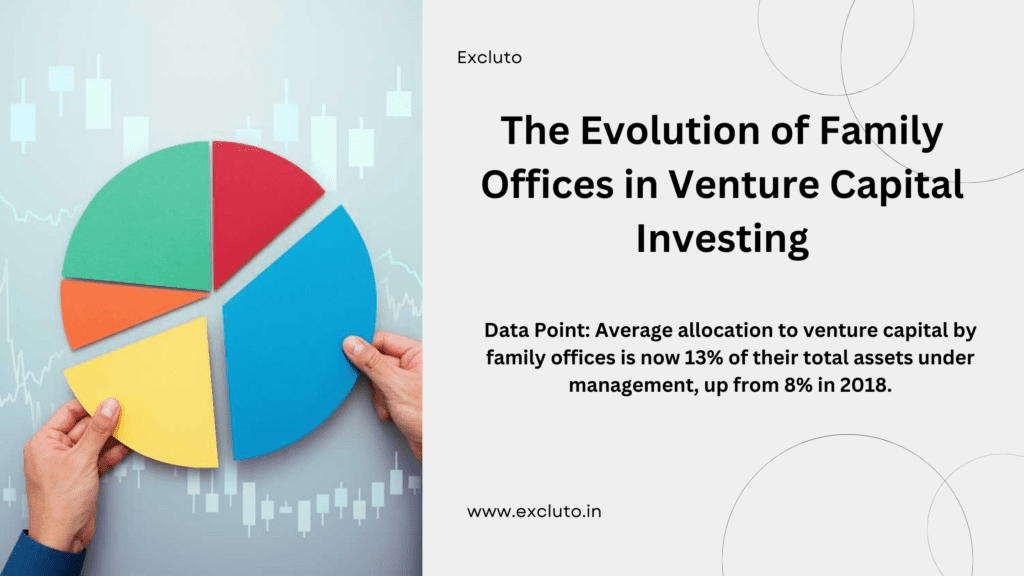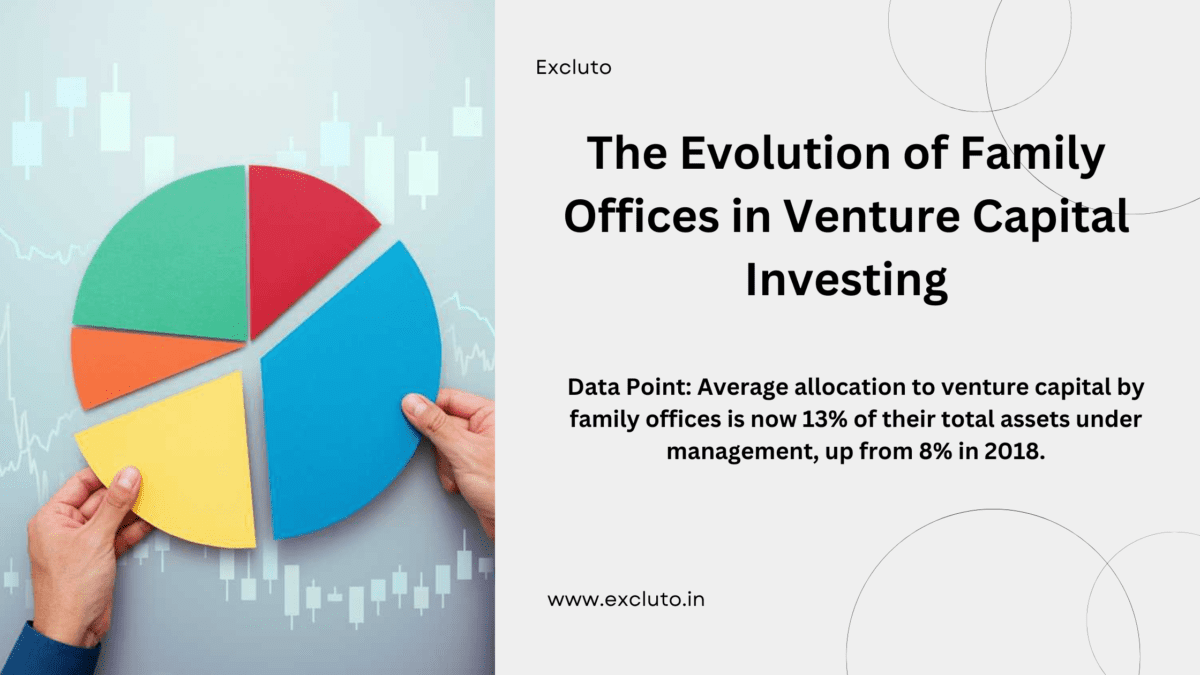In recent years, family offices have increasingly become influential players in the venture capital (VC) landscape. Traditionally focused on wealth preservation and intergenerational wealth transfer, family offices are now actively engaging in venture capital investing.
This shift is driven by the pursuit of higher returns, access to innovative technologies, and the desire to impact positively. This blog explores the evolution of family offices in venture capital investing, supported by recent data, facts, and case studies.
The Growing Influence of Family Offices
Family offices, which manage the investments and financial affairs of wealthy families, have significantly increased their allocations to venture capital. According to a 2023 survey by UBS and Campden Wealth, 46% of family offices globally have increased their allocations to VC over the past year, with a significant portion targeting technology and healthcare sectors.
– Data Point: The same survey found that the average allocation to venture capital by family offices is now 13% of their total assets under management, up from 8% in 2018.
– Source: UBS and Campden Wealth.
Key Drivers of the Shift
1. Higher Return Potential:
Family offices are attracted to the high return potential of venture capital investments. With traditional asset classes like bonds and equities offering moderate returns, venture capital presents an opportunity for outsized gains.
– Fact: The Cambridge Associates U.S. Venture Capital Index reported a 10-year annualized return of 18.3% as of Q1 2023.
– Source: Cambridge Associates.
2. Access to Innovation:
Investing in startups allows family offices to gain early access to cutting-edge technologies and disruptive business models. This not only provides financial returns but also aligns with their interests in innovation and future-proofing their wealth.
– Case Study: The family office of Michael Dell, MSD Capital, has invested in a range of technology startups, including Flexport, a logistics technology company that has revolutionized the freight industry.
– Source: MSD Capital.
3. Impact Investing:
Many family offices are driven by a desire to create a positive social and environmental impact. Venture capital offers a pathway to invest in companies that are addressing global challenges such as climate change, healthcare, and education.
– Fact: A 2023 survey by the Global Impact Investing Network (GIIN) found that 62% of family offices are actively involved in impact investing.
– Source: GIIN.
Strategic Approaches
Family offices adopt various strategies to optimize their venture capital investments:
1. Direct Investments: Some family offices prefer to invest directly in startups, leveraging their networks and expertise to identify promising opportunities. This approach allows for greater control and potentially higher returns.
2. Co-Investments: Partnering with other investors or VC firms through co-investments is a popular strategy. This reduces risk and provides access to deals that might be otherwise inaccessible.
– Case Study: Ratan Tata’s RNT Associates often co-invests with prominent VC firms to gain access to high-quality startups. This strategy has resulted in successful investments in companies like Ola and Snapdeal.
– Source: RNT Associates.
3. Venture Funds: Investing in venture capital funds managed by experienced VCs is another approach. This offers diversification and the benefit of professional management.
– Fact: According to PitchBook, 39% of family offices invest in venture capital funds as part of their strategy.
– Source: PitchBook.
Challenges and Considerations
While the opportunities are significant, family offices must navigate several challenges:

1. Illiquidity: Venture capital investments are typically illiquid, with long holding periods before realizing returns. Family offices need to be prepared for the long-term commitment.
2. Risk Management: High-risk nature of venture capital requires robust risk management strategies. Diversifying investments across multiple startups and sectors is crucial.
3. Regulatory Compliance: Family offices must ensure compliance with regulatory requirements, which can vary significantly across regions.
Conclusion
The evolution of family offices in venture capital investing reflects a broader trend towards embracing innovation, achieving higher returns, and making a positive impact. By strategically allocating capital to venture opportunities, family offices are enhancing their portfolios and contributing to the growth of the startup ecosystem.
At Excluto, we are dedicated to bridging the gap between venture capitalists and investors, including family offices. Our platform provides a seamless and transparent environment for exploring venture capital as an asset class.
By leveraging Excluto, users can access curated investment opportunities, expert insights, and a network of like-minded investors, facilitating a robust and diversified investment strategy.
Read More
The Indian Startup Ecosystem: Key Sectors and Growth Opportunities
Wealth Beyond Tier-1 Cities: Deciphering the fundamentals that make Bharat’s billionaires tick

